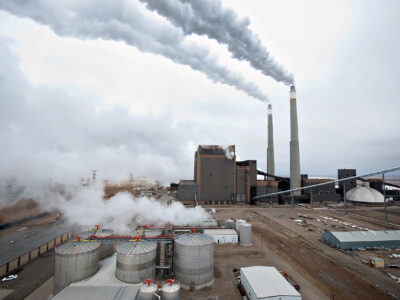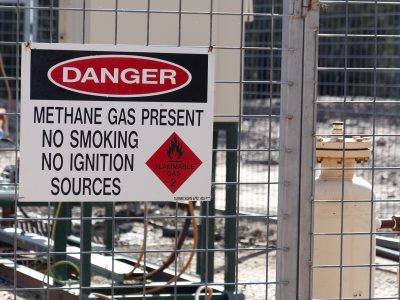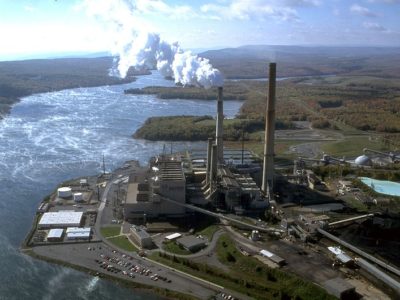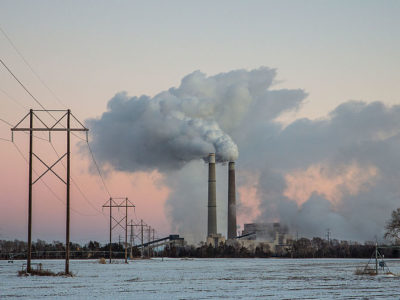New Source Performance Standards
The Emperor’s New Endangerment Theory (Part I)
EPA says the electricity sector’s climate impacts aren’t significant. Really??
EPA has proposed a novel reading of the Clean Air Act (CAA) that would foreclose any regulation of CO2 emissions from power plants. EPA’s core argument is that the statute requires it to determine whether an industry’s emissions “cause or contribute significantly” to climate change and that the industry’s carbon emissions don’t meet that standard. …
Continue reading “The Emperor’s New Endangerment Theory (Part I)”
CONTINUE READINGDeregulating Methane No Matter What
Emmett Institute faculty submit letter opposing Trump’s proposed rollback on methane regulations
Recently, my colleague Sean Hecht and I jointly submitted a comment letter opposing a new EPA Proposed Rule that would roll back standards limiting methane emissions from oil and natural gas production, processing, transmission, and storage facilities. This Proposed Rule essentially revokes two Obama-era regulations, finalized in 2012 and 2016, that first established these methane …
Continue reading “Deregulating Methane No Matter What”
CONTINUE READINGEPA Shouldn’t Roll Back Coal Power Plant Emissions Standard, Conclude Experts in Electrical Grid Management and Pollution Control Technology Innovation
Emmett Institute Faculty File Two Comment Letters on Behalf of Experts, Demonstrating Flaws In Proposed Rollback of New Source Performance Standard for New Coal-Fired Power Plants
In 2015, EPA set greenhouse gas emissions standards for new coal-fired and natural gas-fired power plants under the Clean Air Act’s New Source Performance Standards program, Section 111(b) of the Act. These standards ensure that new plants can be built only if they incorporate state-of-the-art emissions controls. Unfortunately, in late 2018, the Trump Administration EPA proposed …
CONTINUE READINGUpdate on the Litigation Over EPA’s Rule Controlling Greenhouse Gas Emissions from New Power Plants
UCLA Faculty File Amicus Brief on Behalf of Technological Innovation Experts
Late in 2015, the Environmental Protection Agency issued New Source Performance Standards to control greenhouse gas emissions from new and modified fossil-fuel-fired power plants under the Clean Air Act. This regulation is a companion to the more-often-discussed Clean Power Plan rule, which addresses greenhouse gas emissions from existing sources in the power generation sector. Last …
CONTINUE READINGGuest Blogger Kate Konschnik: The Debate about EPA’s Authority to Regulate Carbon Pollution is a Lot of Things – But Not These Things
Kate Konschnik is the Director of Harvard Law School’s Environmental Policy Initiative. The views expressed in this blog post are her own.
Clean Power Plan challengers have asked the D.C. Circuit to stay the rule pending litigation. Today, industry and environmental groups supporting EPA will file their oppositions to this request. The stay motions included the charge that EPA may not use Section 111(d) at all to curb pollution from existing power plants. Dan Farber and I …
CONTINUE READINGIs CCS the “best” system of emission reduction for coal-fired power plants?
Exploring Potential Challenges to EPA’s New Source Performance Standard: PART II
This post is the second in a mini-series (see first post) exploring likely legal challenges to the New Source Performance Standard (NSPS) for power-plant greenhouse gas emissions under Clean Air Act § 111(b), and how those challenges might affect the Clean Power Plan. In my first post on EPA’s New Source Performance Standard (NSPS) for …
Continue reading “Is CCS the “best” system of emission reduction for coal-fired power plants?”
CONTINUE READINGGuest Blogger Kate Konschnik: EPA’s 111(d) Authority – Follow Homer and Avoid the Sirens
Kate Konschnik is the Director of Harvard Law School’s Environmental Policy Initiative. The views expressed in this blog post are her own. Thirty years ago, Chevron v. NRDC set the standard for judicial deference to an agency’s statutory interpretation. In that case, the Supreme Court upheld EPA’s interpretation of Clean Air Act language. This month, …
CONTINUE READINGLots of Rhetoric, Not Much New in Obama’s Climate Plan
The Obama Administration just released a “Climate Action Plan” to accompany the speech the President will give this morning at Georgetown University. I applaud the President for delivering a speech devoted exclusively to climate change. But for all the hooplah surrounding the President’s speech as “major,” the measures he’s proposed in the new plan to …
Continue reading “Lots of Rhetoric, Not Much New in Obama’s Climate Plan”
CONTINUE READINGTime May Run Out on Obama’s Most Powerful Climate Change Tool, Environmental Groups Threaten Suit
President Obama has a surprising amount of power to reduce greenhouse gases from the two largest categories of emitters, the transportation and electricity sectors, without getting Congress to act. He has already used that power to dramatically tighten fuel economy standards for passenger autos. But his ability to reduce emissions from the electricity sector — …
CONTINUE READINGWhat EPA should do with its delayed performance standards for GHGs
On September 15, EPA announced that it would not meet its September deadline for proposing performance standards for greenhouse gas (GHG) pollution from power plants. (That is the second delay; this proposal was originally scheduled for July 2011.) Some are asking if this delay is a big deal, and several environmental leaders sent President Obama …
Continue reading “What EPA should do with its delayed performance standards for GHGs”
CONTINUE READING








